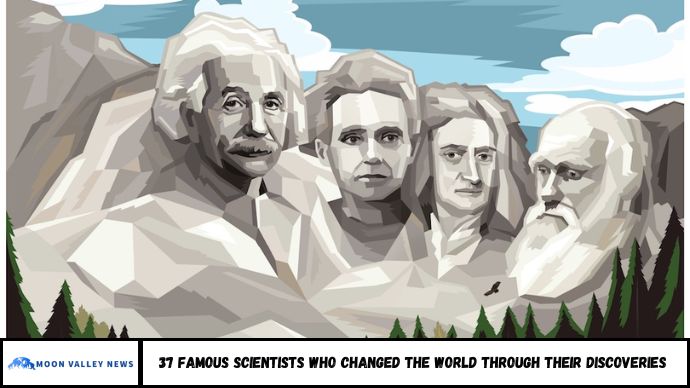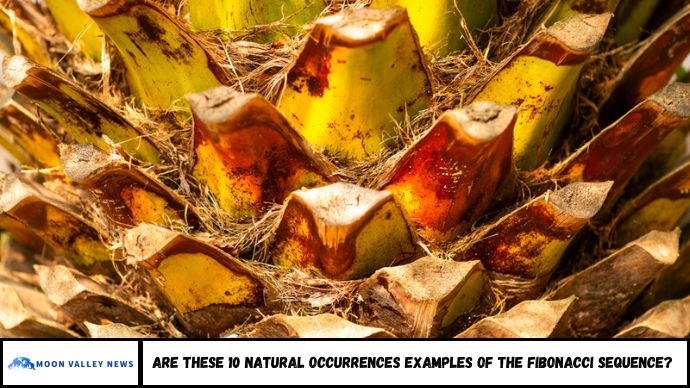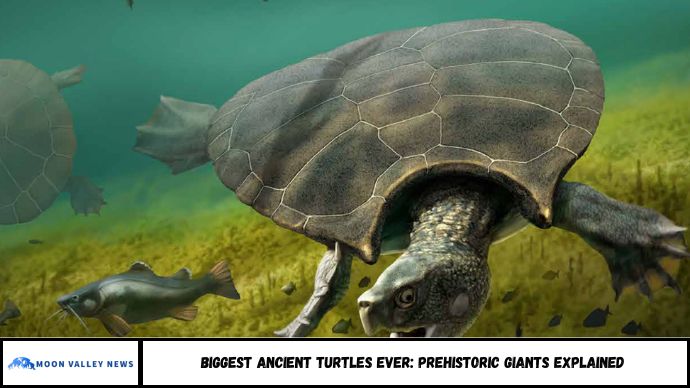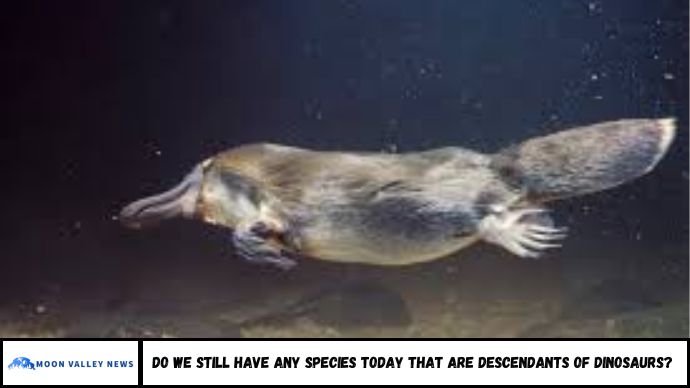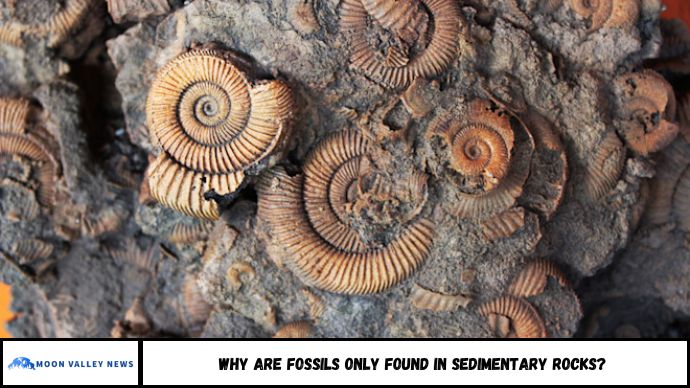Discover the lives and legacies of 37 famous scientists who revolutionized the world through groundbreaking scientific discoveries. This article explores their contributions across physics, biology, chemistry, and more—highlighting how their work continues to influence modern science, technology, and daily life. Packed with facts, timelines, and historical context, it’s your go-to guide for learning about the minds that shaped our future.
Introduction: Who Are the People Behind the World’s Greatest Innovations?
Imagine a world without electricity, vaccines, or the internet. None of these would exist without the pioneering efforts of scientists whose curiosity and persistence led to revolutionary breakthroughs. Who were these individuals—and what exactly did they discover?
In this article, we dive into 37 of the most influential scientists in history. From Isaac Newton’s laws of motion to Marie Curie’s radioactive revelations, you’ll learn how their discoveries forever altered the way we live, think, and understand the universe.
1. Foundational Thinkers Who Set the Stage for Modern Science
1. Isaac Newton (1643–1727) – Laws of Motion & Gravity
- Developed the three laws of motion
- Invented calculus
- Explained universal gravitation
2. Galileo Galilei (1564–1642) – Father of Modern Physics
- Improved the telescope
- Proved heliocentric theory
- Pioneered kinematics
3. Archimedes (c. 287 BCE–212 BCE) – Ancient Greek Innovator
- Discovered buoyancy principle
- Invented levers and pulleys
- Laid groundwork for engineering and physics
2. Biological and Medical Marvels
4. Louis Pasteur (1822–1895) – Germ Theory Pioneer
- Developed pasteurization
- Created vaccines for rabies and anthrax
5. Charles Darwin (1809–1882) – Theory of Evolution
- Proposed natural selection
- Wrote On the Origin of Species (1859)
6. Alexander Fleming (1881–1955) – Discoverer of Penicillin
- Revolutionized antibiotics
- Saved millions from bacterial infections
7. Gregor Mendel (1822–1884) – Father of Genetics
- Identified hereditary patterns through pea plants
3. Chemists Who Transformed Everyday Life
8. Marie Curie (1867–1934) – Radioactivity Researcher
- Discovered polonium and radium
- First woman to win a Nobel Prize (twice!)
9. Dmitri Mendeleev (1834–1907) – Periodic Table Creator
- Arranged elements based on atomic weight and properties
10. Rosalind Franklin (1920–1958) – DNA Structure Contributor
- Used X-ray diffraction to image DNA’s double helix
4. Physics Geniuses Who Reshaped Reality
11. Albert Einstein (1879–1955) – Theory of Relativity
- E = mc² changed our view of space and time
- Explained the photoelectric effect
12. Niels Bohr (1885–1962) – Atomic Structure Innovator
- Developed Bohr model of the atom
- Contributed to quantum mechanics
13. Stephen Hawking (1942–2018) – Black Hole Theorist
- Proposed Hawking radiation
- Wrote A Brief History of Time
5. Inventors and Engineers Who Built the Modern World
14. Nikola Tesla (1856–1943) – Alternating Current & Wireless Power
- Revolutionized electricity distribution
- Pioneered radio and remote control
15. Thomas Edison (1847–1931) – Light Bulb and Phonograph
- Held over 1,000 patents
- Created first industrial research lab
16. James Watt (1736–1819) – Steam Engine Innovator
- Enabled industrial revolution
6. Modern Minds Pushing Boundaries Today
17. Tim Berners-Lee – Inventor of the World Wide Web
- Changed communication and commerce forever
18. Katalin Karikó – mRNA Vaccine Pioneer
- Key figure behind COVID-19 vaccines
19. Jennifer Doudna – Gene Editing Trailblazer
- Co-developed CRISPR technology
7. A Broader List of 37 Impactful Scientists (Quick Summary)
Here’s a broader list to explore:
- Isaac Newton
- Albert Einstein
- Marie Curie
- Charles Darwin
- Nikola Tesla
- Galileo Galilei
- Louis Pasteur
- Dmitri Mendeleev
- Rosalind Franklin
- Alexander Fleming
- Stephen Hawking
- Niels Bohr
- Gregor Mendel
- James Clerk Maxwell
- Carl Linnaeus
- Johannes Kepler
- Edwin Hubble
- Jane Goodall
- Richard Feynman
- Robert Hooke
- Erwin Schrödinger
- Max Planck
- Antoine Lavoisier
- J.J. Thomson
- Rachel Carson
- Florence Nightingale
- Alan Turing
- Ada Lovelace
- John Dalton
- Hans Christian Ørsted
- Linus Pauling
- Benjamin Franklin
- Carl Sagan
- Katalin Karikó
- Jennifer Doudna
- Tim Berners-Lee
- James Watson
Key Takeaways: What Makes These Scientists So Influential?
- They solved real-world problems—from disease to energy.
- Their discoveries laid the foundation for new scientific fields.
- Their legacies continue to shape medicine, technology, and environmental science.
Latest Statistics That Show Their Lasting Impact
- According to UNESCO, over 70% of all Nobel Prizes have connections to discoveries by these foundational scientists.
- Penicillin alone is estimated to have saved over 200 million lives since its mass use began in the 1940s.
- The mRNA vaccine—rooted in work by Karikó and others—helped prevent millions of COVID-19 deaths worldwide, with over 13 billion doses administered globally by 2025.
FAQs
1. Who is the most influential scientist of all time?
Many consider Isaac Newton the most influential for his work in physics and mathematics.
2. Who was the first female scientist to win a Nobel Prize?
Marie Curie was the first and remains the only person to win in two different sciences.
3. Which scientist discovered gravity?
Isaac Newton formulated the law of universal gravitation.
4. Who invented the World Wide Web?
Tim Berners-Lee created it in 1989.
5. What is CRISPR and who developed it?
CRISPR is a gene-editing tool co-developed by Jennifer Doudna.
6. Why is Louis Pasteur important?
He proved germs cause disease and developed life-saving vaccines.
Conclusion
The impact of these 37 scientists goes far beyond laboratories and textbooks. Their discoveries have saved lives, transformed industries, and expanded our understanding of the universe. As we continue to face challenges like climate change, pandemics, and AI ethics, their legacies offer both inspiration and guidance.
Takeaway: Whether you’re a student, educator, or simply curious—knowing these scientific pioneers helps you appreciate the world you live in and inspires future innovation.

